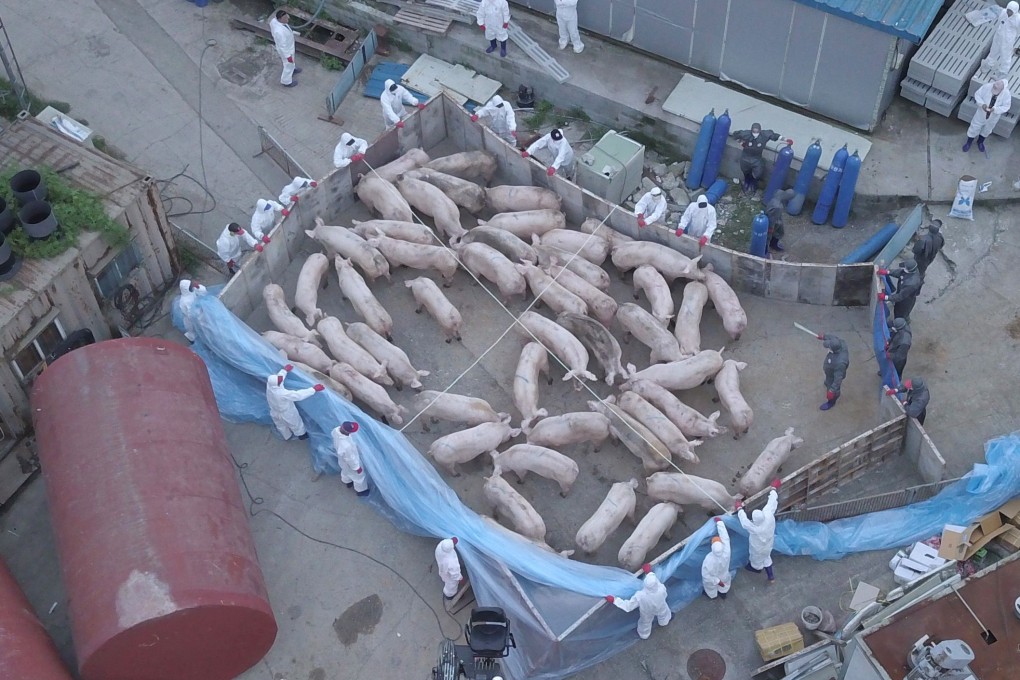South Koreans rush to eat pork as swine fever cuts supply and threatens entire industry
- On Wednesday, tests confirmed the country’s sixth case on a farm in Ganghwa, near the border with North Korea
- The virus decimated herds in China and other Asian countries before reaching the Korean peninsula

Kim Pil-soon owns the popular Daechon restaurant in Seoul’s Bangbae district but she has no idea when her next delivery of pork might arrive.
“When we sell that chunk of pork, that’s it for the day,” she says, pointing to the remaining 7kg of pork belly being sliced by her husband.
Authorities extended an initial 48-hour nationwide “standstill” order by another 48 hours, banning the movement of all vehicles and people between pig farms, butcheries and feed mills.
On television, government workers dressed in white lab coats can be seen guarding roadblocks and excavators dig huge pits to bury thousands of pigs.
The aim is to prevent the spread of the virus, which endangers an industry with 6,300 farms raising more than 11 million pigs, but the measures have also heightened anxieties about supply bottlenecks.